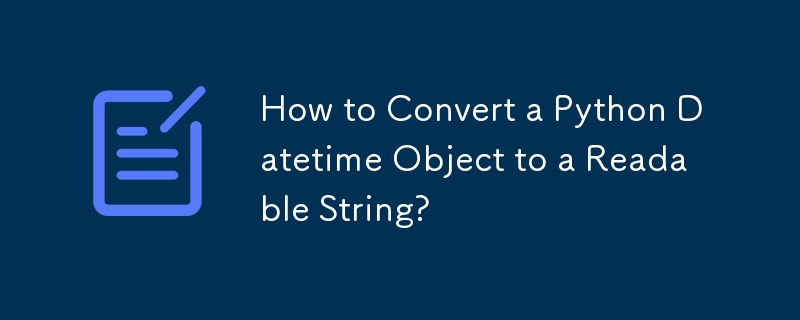

How to Convert a Python Datetime Object to a String with Readable Format Date
Python's datetime class provides a robust framework for handling date and time data. When working with datetime objects, it is often necessary to convert them into strings with a readable format for display or storage.
Proposed Solution:
To achieve this conversion, the datetime class offers the strftime() method. This method allows you to specify a custom format string that defines how the datetime object should be formatted.
Example:
Consider the following example:
<code class="python">from datetime import datetime
# Create datetime object from timestamp tuple
t = (2010, 1, 28, 8, 39, 49, 3)
dt = datetime(*t)
# Convert to readable string
readable_date = dt.strftime("%B %d, %Y")
print(readable_date)</code>In this example, the strftime() method is called with the format string "%B %d, %Y", which specifies that the output should include the month name (%B), day (%d), and year (%Y).
Customizable Formatting:
The Python documentation provides a comprehensive list of supported format codes that can be used in the strftime() format string. This allows you to customize the output to your specific requirements. For instance, you could modify the format to include time components or specify a different locale for language-specific formats.
Additional Considerations:
The above is the detailed content of How to Convert a Python Datetime Object to a Readable String?. For more information, please follow other related articles on the PHP Chinese website!




